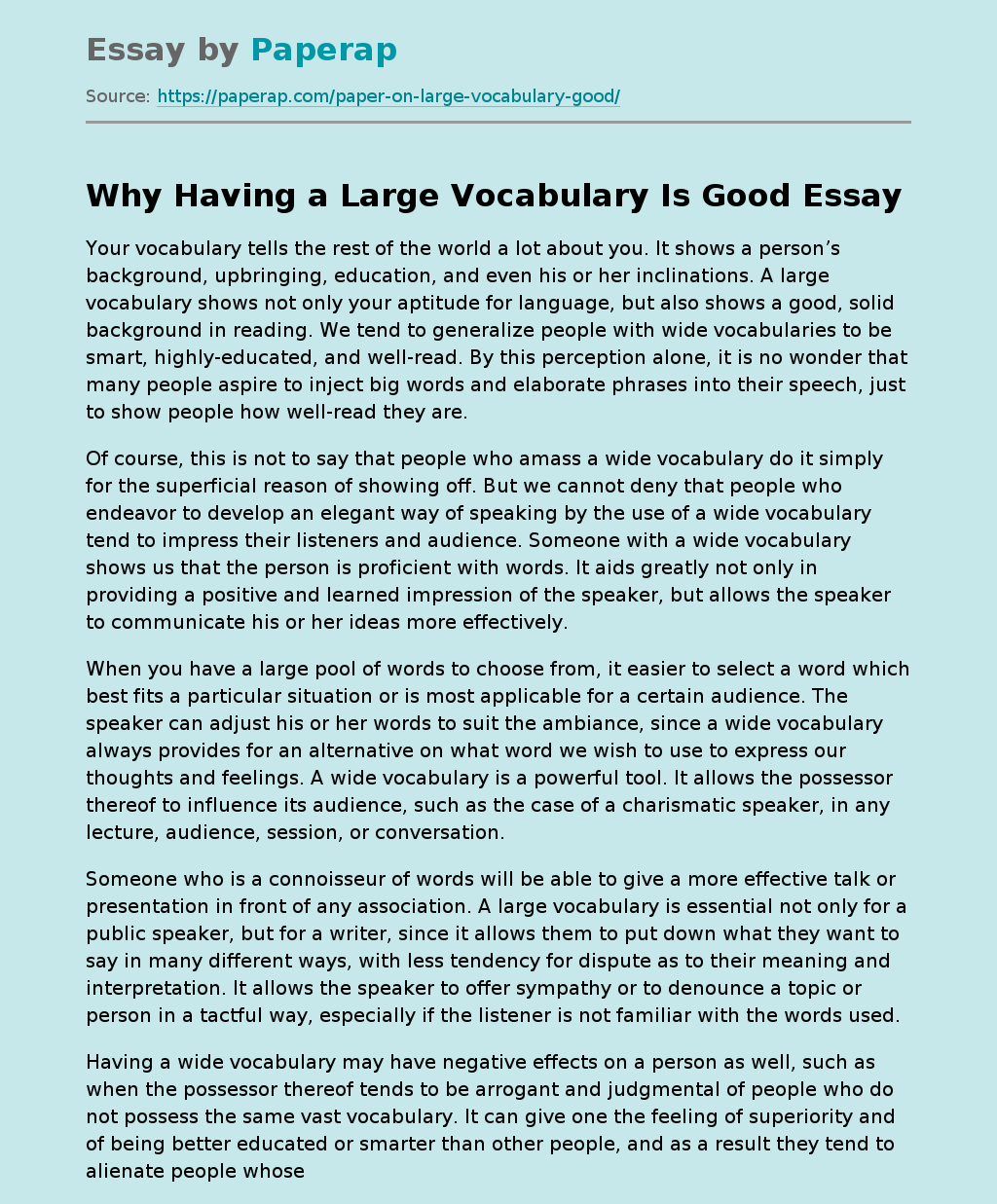Why Having a Large Vocabulary Is Good
Your vocabulary tells the rest of the world a lot about you. It shows a person’s background, upbringing, education, and even his or her inclinations. A large vocabulary shows not only your aptitude for language, but also shows a good, solid background in reading. We tend to generalize people with wide vocabularies to be smart, highly-educated, and well-read. By this perception alone, it is no wonder that many people aspire to inject big words and elaborate phrases into their speech, just to show people how well-read they are.
Of course, this is not to say that people who amass a wide vocabulary do it simply for the superficial reason of showing off. But we cannot deny that people who endeavor to develop an elegant way of speaking by the use of a wide vocabulary tend to impress their listeners and audience. Someone with a wide vocabulary shows us that the person is proficient with words. It aids greatly not only in providing a positive and learned impression of the speaker, but allows the speaker to communicate his or her ideas more effectively.
When you have a large pool of words to choose from, it easier to select a word which best fits a particular situation or is most applicable for a certain audience. The speaker can adjust his or her words to suit the ambiance, since a wide vocabulary always provides for an alternative on what word we wish to use to express our thoughts and feelings. A wide vocabulary is a powerful tool.
It allows the possessor thereof to influence its audience, such as the case of a charismatic speaker, in any lecture, audience, session, or conversation.
Someone who is a connoisseur of words will be able to give a more effective talk or presentation in front of any association. A large vocabulary is essential not only for a public speaker, but for a writer, since it allows them to put down what they want to say in many different ways, with less tendency for dispute as to their meaning and interpretation. It allows the speaker to offer sympathy or to denounce a topic or person in a tactful way, especially if the listener is not familiar with the words used.
Having a wide vocabulary may have negative effects on a person as well, such as when the possessor thereof tends to be arrogant and judgmental of people who do not possess the same vast vocabulary. It can give one the feeling of superiority and of being better educated or smarter than other people, and as a result they tend to alienate people whose vocabulary do not match theirs. What people with a wide vocabulary should take not is that not everyone is as fortunate to have been exposed to such literature and education, and that a lack of a wide vocabulary does not necessarily indicate illiteracy, but rather a lack of opportunity.
People with a large vocabulary comprise a privileged set – those who have had the opportunity to read or study extensively – and should not make excessive use of this gift to segregate other people who have not been as lucky. Instead, they should use their vocabulary to entice people to the world of reading and learning, and should be generous about sharing the benefits of having a large vocabulary. They must not hesitate to share what they know, and must use their large vocabulary as a tool not only in expressing themselves but in helping others to express themselves as well.
Why Having a Large Vocabulary Is Good. (2017, May 30). Retrieved from https://paperap.com/paper-on-large-vocabulary-good/

